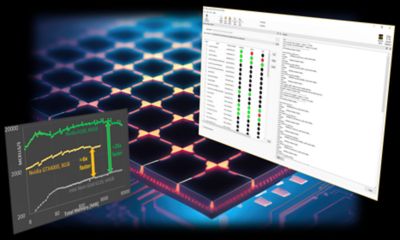About this Webinar
The 2023 R2 release of Ansys Lumerical introduces a series of powerful new capabilities to extend usability, accuracy, performance, and functionality across its family of products. Ansys Lumerical is speeding up, especially for metalens designs, photonic integrated quantum circuits, and photonic integrated components. Accelerate your Lumerical FDTD photonic integrated component designs on GPU for the first time.
Several improvements to our integrated flows with Zemax and Speos, combined with new capabilities in Lumerical RCWA and advanced post-processing methods, further streamline the modeling of nanoscale to macroscale optics for augmented reality, metalens design, and end-to-end modeling of camera systems. Lumerical CML Compiler has a new GUI to simplify your compact modeling experience further. Performance improvements in qINTERCONNECT now allow double the number of channels or frequencies with the same simulation run time. These are only a few new capabilities in the array of new features that we'll show.
What You Will Learn
- Simplify the process of compact model generation with the new CML Compiler GUI
- Optimize the layout and performance of photonic components via the new Geometry Wizard available in the Lumerical & Cadence EPDA flow
- Experience the power of GPU for accelerating FDTD simulations, especially for photonic integrated component design and metasurface applications
- Streamline workflows and facilitate remote job execution with the new remote Python API
- Access all Ansys Optics products and examples from the new Optics Launcher
- Leverage new field monitors, oriented meshing, distributed sweeps, and other advanced new features in the RCWA solver
- Speedup metalens designs by 10-100 times using faster workflows
- Simulate larger metalenses up to 25 mm in diameter
- Increase the accuracy and range of analysis for complete end-to-end Camera Image Sensor virtual prototyping solution
Who Should Attend
Photonic and optical engineers and scientists will attend to learn about the latest simulation capabilities and how best to leverage the tools in their design process
Speaker
Charly Meyer
Federico Duque Gomez
Ahsan Alam












